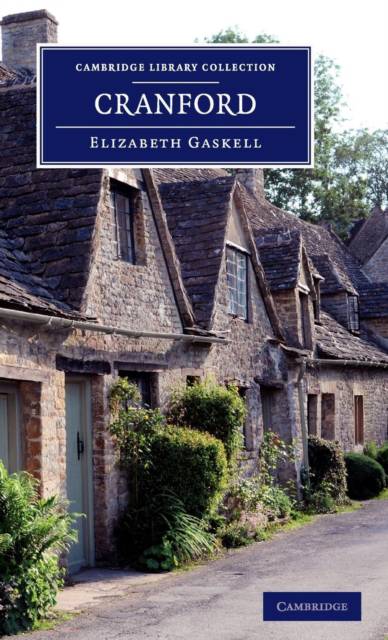
- Afhalen na 1 uur in een winkel met voorraad
- Gratis thuislevering in België vanaf € 30
- Ruim aanbod met 7 miljoen producten
- Afhalen na 1 uur in een winkel met voorraad
- Gratis thuislevering in België vanaf € 30
- Ruim aanbod met 7 miljoen producten
Zoeken
€ 149,95
+ 299 punten
Uitvoering
Omschrijving
In the delicately impoverished town of Cranford, everyone is keen to know everyone else's business. The community is almost devoid of men, and in their place a solid matriarchy has formed. Manners must be observed, house calls must not exceed a quarter of an hour, and neither money matters nor death may be discussed in public. But the peace is often disturbed. Rumoured burglars, literary disagreements, and the arrival of Captain Brown and his tactless daughters all cause ripples, warmly charted by the conversational narrator, Mary Smith. When the past erupts through the fragile class distinctions and disputed tea sales, the customary perspective of the town shifts in small but perceptible ways forever. First published as a magazine serial from 1851 and then in novel form in 1853, Cranford is the best-known work by Elizabeth Gaskell (1810-65). This reissue is of the 1853 second edition.
Specificaties
Betrokkenen
- Auteur(s):
- Uitgeverij:
Inhoud
- Aantal bladzijden:
- 334
- Taal:
- Engels
- Reeks:
Eigenschappen
- Productcode (EAN):
- 9781108060424
- Verschijningsdatum:
- 9/05/2013
- Uitvoering:
- Hardcover
- Formaat:
- Genaaid
- Afmetingen:
- 140 mm x 216 mm
- Gewicht:
- 571 g

Alleen bij Standaard Boekhandel
+ 299 punten op je klantenkaart van Standaard Boekhandel
Beoordelingen
We publiceren alleen reviews die voldoen aan de voorwaarden voor reviews. Bekijk onze voorwaarden voor reviews.











